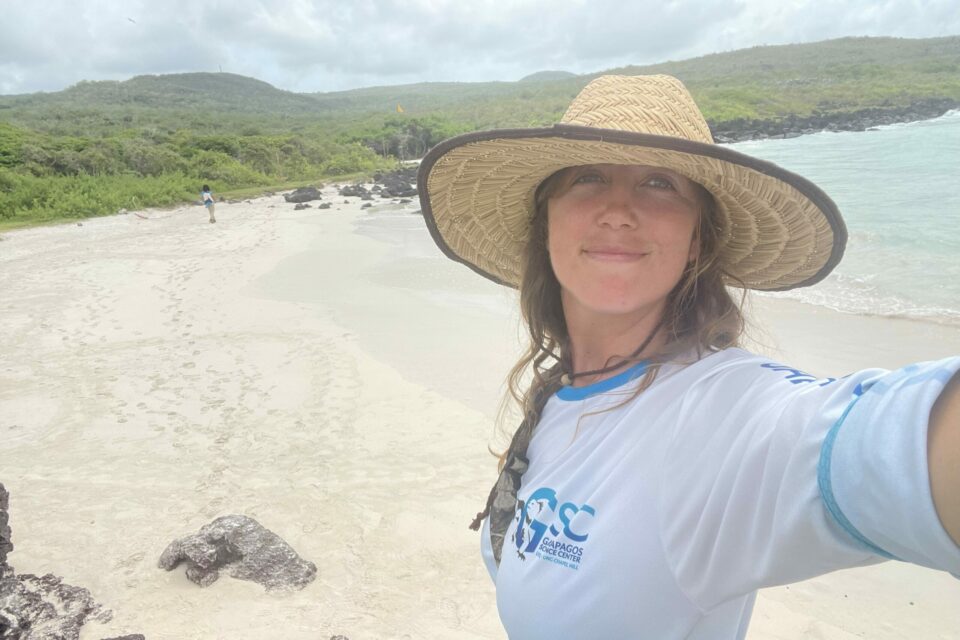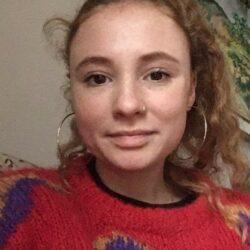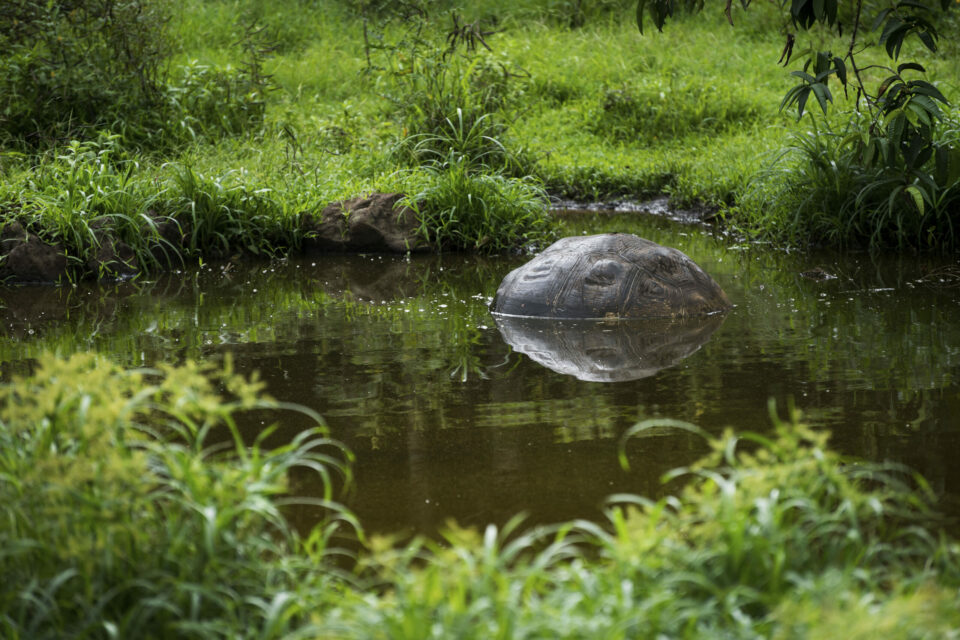

An interview with marine biologist Dr Joanna Alfaro
We asked Dr Joanna Alfaro, Director of Pro Delphinus, a few questions about the impacts of plastic pollution that she's witnessed on wildlife, including waved albatross.
To protect the Critically Endangered waved albatross and its only breeding ground on Española island, in Galapagos, we need the support of global and local communities. Storytelling is a great way to introduce younger generations to environmental issues such as plastic pollution and industrial fishing activities and ensure that conservation efforts are maintained by our future conservationists.
We asked Dr Joanna Alfaro, Director of Pro Delphinus, a Peruvian-based conservation NGO, a few questions about the impacts of plastic pollution that she’s witnessed on wildlife, including waved albatrosses. Dr Alfaro also gives insight into how we can fight this pervasive issue, including the invaluable role of environmental education through storytelling.

Waved albatross
Phoebastria irrorata
The waved albatross has the largest wingspan in Galapagos, but these monogamous birds are under threat.

What is your most memorable experience with a waved albatross?
I was working on a fishing boat out of Salaverry, a port off the central coast of Peru, when all of a sudden, I saw a huge bird approach the boat and sit close to the fishing nets. Initially, I didn’t understand why the bird was sitting there waiting, but as soon as the fishermen started hauling in, I saw the waved albatross swoop down to snatch up fish the fishermen had caught. Before that day, I had only seen this behaviour in videos or pictures, so it was thrilling to see it in person.

Why is it important to protect the waved albatross and its breeding ground on Española island?
The waved albatross is a Critically Endangered species, with only 12,000 breeding pairs left in the wild. Española island is critically important to this species as it is the main site where breeding pairs come to raise only one chick a year.
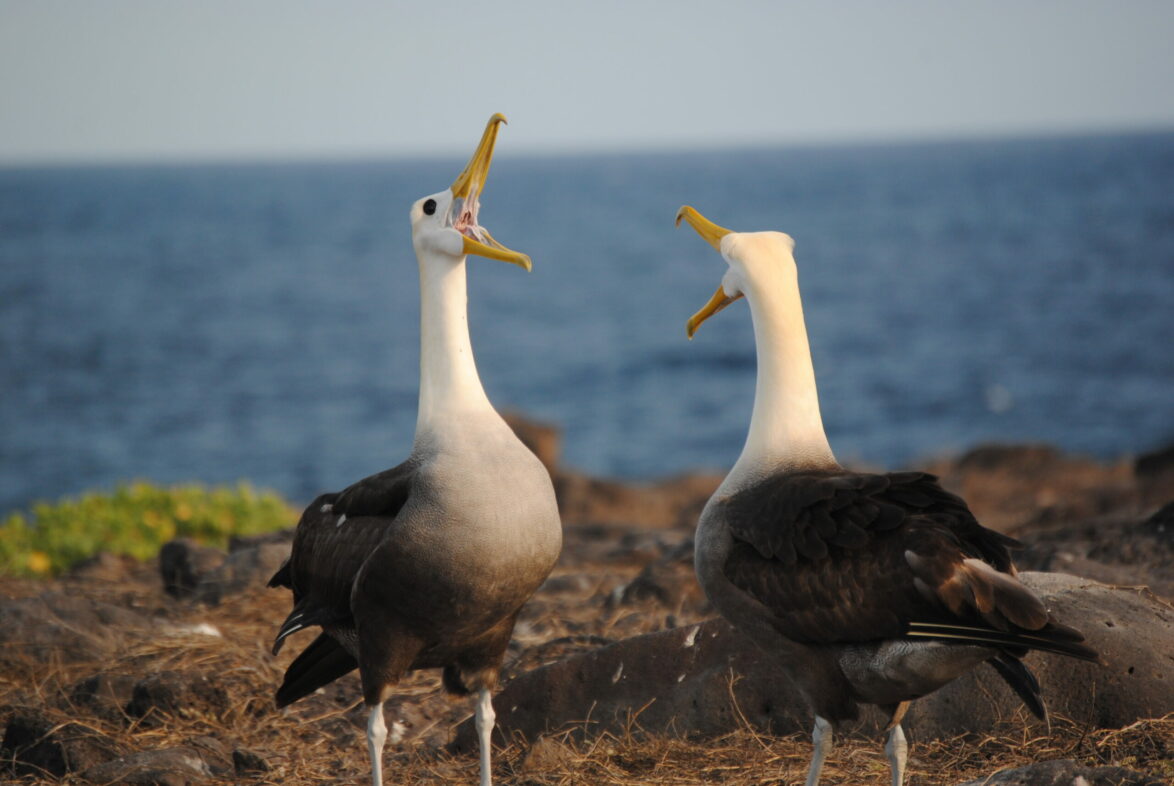
We all have a responsibility to educate ourselves and others about the threat of plastic pollution to wildlife, as only through greater awareness of these issues can we make positive changes.
Through your research, what impacts have you seen of plastic pollution and commercial fishing, particularly long-lining, on species such as the waved albatross?
I have seen first-hand the impact of commercial fishing on marine species. I often see marine bird species, including waved albatrosses feeding from fishing nets and longlines, which poses a considerable risk as they can become entangled in nets or caught on baited hooks and sadly drown.

What can we do in our daily lives to help fight plastic pollution?
Small acts count a lot. Shopping responsibly is a big step, including buying fish from sustainable, clean fisheries. We also all have a responsibility to educate ourselves and others about the threat of plastic pollution to wildlife, as only through greater awareness of these issues can we make positive changes. Although plastic pollution is a big issue, it is important not to feel defeated; keep up the positivity and make a difference!
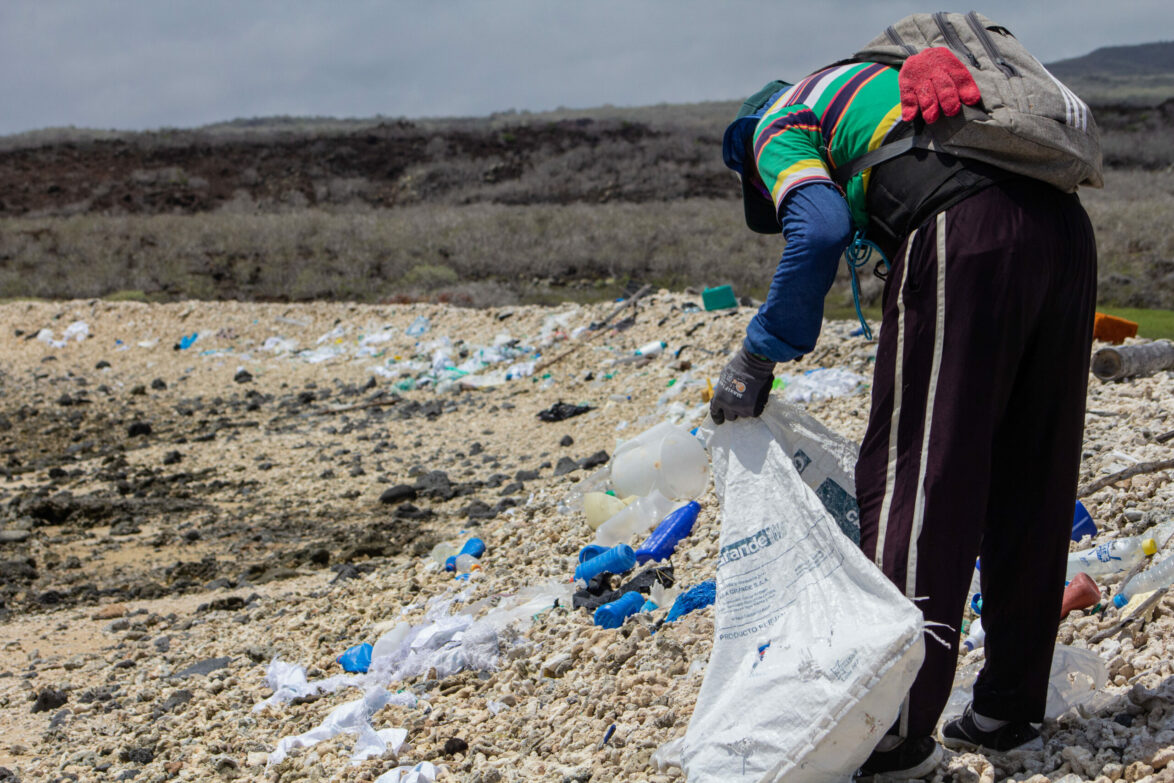
How important is it to engage children at a young age in learning about the environment through educational initiatives such as storytelling?
Children are like sponges in a way, absorbing lots of information, which is why it is important to introduce them to environmental education early. Children are often really passionate about what they are learning, so why not provide them with the tools to be passionate about the environment and its biodiversity? And because, in a way, I am still a child myself, and the ocean is my passion, I am excited about the new Alberto the Waved Albatross storybook and the conservation messages it teaches.

Through your research and time working with fishers, what are some of their views and experiences of dealing with marine plastic pollution?
During trips at sea, I have seen fishers storing their plastics from the trip, but once on land, there are few places to dispose of the rubbish. Sadly, I have seen others throwing plastics directly into the sea, thinking that it is a small amount compared to the vast ocean and, therefore, won’t have an impact. So there are mixed views amongst fishers on the impact plastic pollution poses to wildlife, which is why it is important to include them and their needs when developing solutions to plastic pollution.
These answers highlight the seriousness of the threats facing the waved albatross and many other species and the positive impact education can hold.
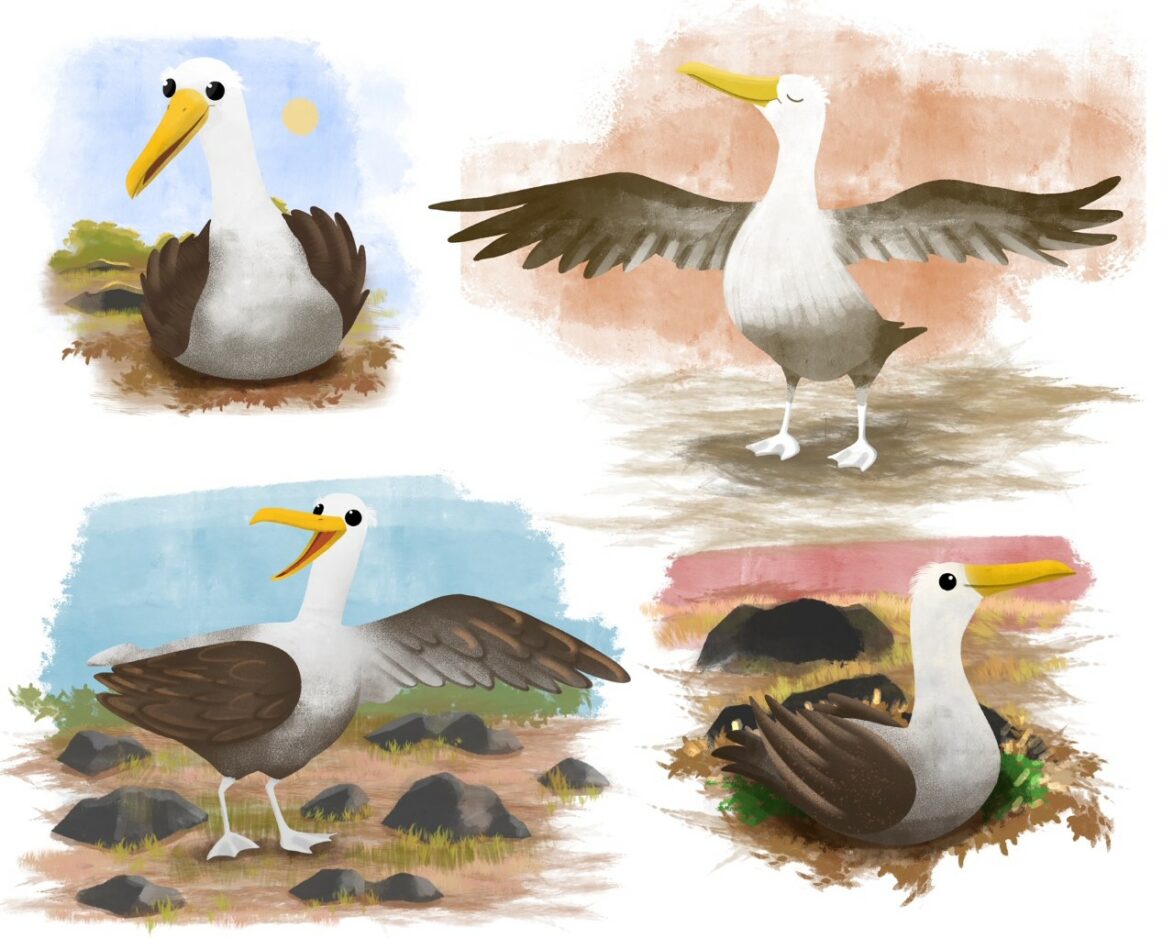
Long-line fishing in the Galapagos Archipelago
Long-line fishing is a technique used to catch fish in open water. The technique has been shown to have a detrimental impact on marine ecosystems and endangered species.

Related articles

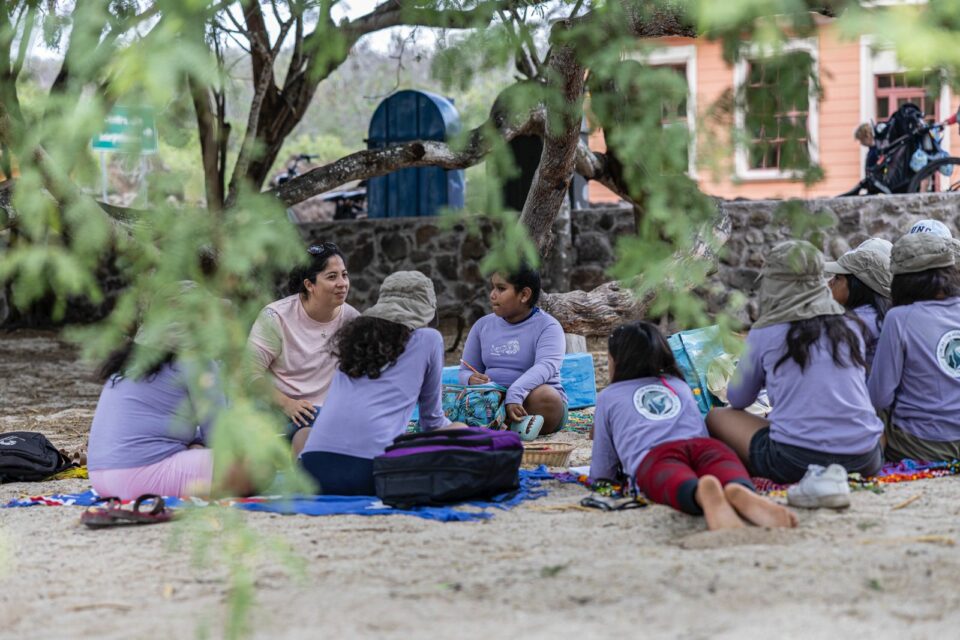
Gills Club: Empowering young women in Galapagos
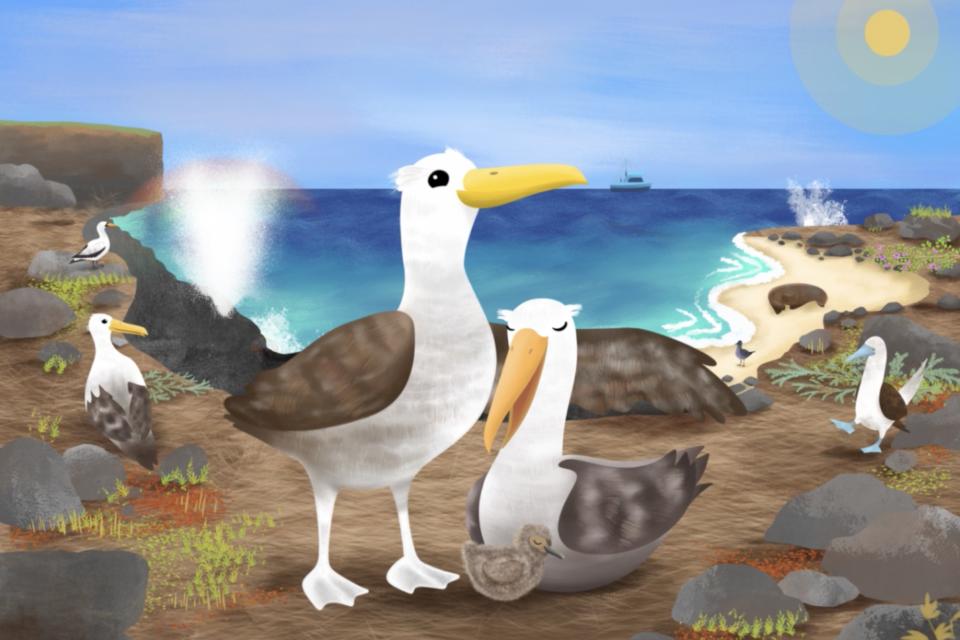
Meet the woman who brought Alberto the Waved Albatross to life
